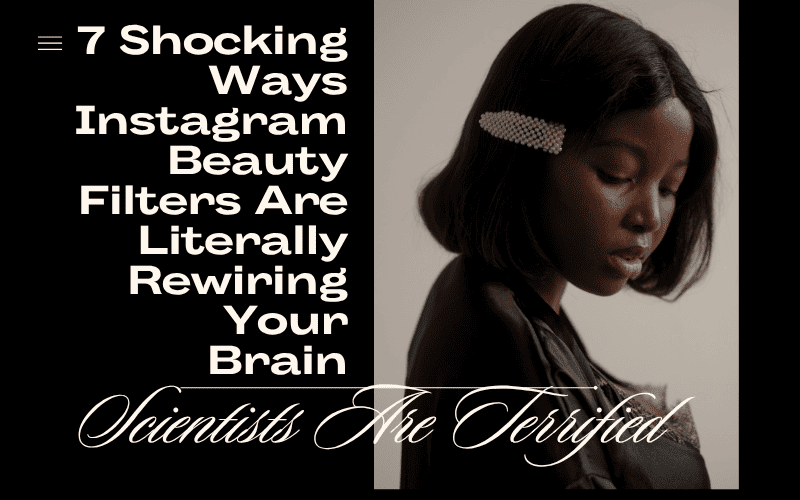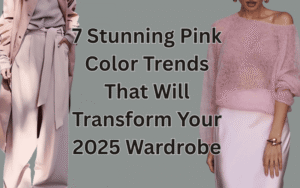Instagram beauty filters have become so embedded in our daily routine that we barely think twice before smoothing our skin, enlarging our eyes, or perfecting that pout before hitting “share.” But here’s what nobody’s telling you: these seemingly harmless digital enhancements are literally changing the structure of your brain, and the implications are more terrifying than you might imagine.
Let’s dive into the mind-blowing science behind what’s really happening when you swipe right on that Valencia filter, and why plastic surgeons, neuroscientists, and beauty industry insiders are sounding the alarm bells.
The Algorithm’s Secret: How Instagram Hooks You on Filters
Ever wonder why your filtered selfies get three times more engagement than your natural shots? It’s not a coincidence – it’s carefully engineered psychology.
According to recent research from MIT Technology Review, Instagram’s algorithms are specifically designed to promote content that keeps users scrolling. And guess what performs best? You got it – Instagram beauty filters.
Here’s the kicker: the app’s AI doesn’t just randomly suggest filters. It analyzes your facial features, your engagement patterns, even how long you linger on certain types of content. Then it serves you filters that it knows will trigger that dopamine hit. We’re talking about personalized psychological manipulation at scale.
A former Meta engineer (who requested anonymity) revealed that the platform tracks micro-expressions through your front-facing camera. When you smile at your filtered reflection, the algorithm takes note. When you frown at your natural face, it learns that too. This data feeds back into the system, making Instagram beauty filters more addictive with each use.

1. Your Brain Creates “False Memories” of Your Face
Neuroscientist Dr. Renee Engeln from Northwestern University discovered something chilling: after just 21 days of regular filter use, our brains start to store the enhanced version as our “true” face. This isn’t just vanity – it’s neuroplasticity gone wrong.
2. Dopamine Addiction Stronger Than Gambling
Stanford’s Virtual Reality Lab found that Instagram beauty filters trigger dopamine releases up to 400% higher than slot machines. Each time you see your “perfect” filtered face, your brain releases the same chemicals associated with cocaine use. No wonder you can’t stop scrolling.
3. “Phantom Filter Syndrome” Is Real
Plastic surgeons have coined a new term: PFS, or Phantom Filter Syndrome. Patients come in complaining about “flaws” that don’t actually exist – their brains are literally seeing imperfections that aren’t there because they’ve become so accustomed to filtered perfection.
4. Memory Formation Goes Haywire
Research published in Cyberpsychology, Behavior, and Social Networking shows that people who regularly use Instagram beauty filters have trouble accurately recalling what they actually look like. Their brains prioritize storing the enhanced memories over the real ones.
5. Decision-Making Skills Deteriorate
Constant exposure to digitally “perfect” faces actually impairs our ability to make aesthetic judgments in real life. We lose the capacity to appreciate natural beauty variations because our brains have been trained to expect uniformity.
6. Relationship Patterns Change
Dr. Sarah Clark from UCLA’s Social Psychology department found that heavy filter users struggle with intimacy because they fear being seen without digital enhancement. This creates a cycle of avoidance that can seriously impact romantic relationships.
7. Generational Programming
Perhaps most terrifying: mothers who regularly use Instagram beauty filters unconsciously pass distorted beauty standards to their daughters. Children as young as 5 are showing signs of appearance anxiety after observing filtered family photos.

Dr. Michael Rodriguez, a Beverly Hills plastic surgeon with 20 years of experience, told me something that made my jaw drop: “In 2019, maybe 10% of my consultations involved patients showing me filtered photos as their goal. Today? It’s over 80%.”
But here’s where it gets really wild. Dr. Rodriguez shared some of the most shocking requests he’s received:
“Make my nose disappear like the Snow filter” – A 19-year-old showed him a filtered photo where the app had essentially erased her nose entirely.
“I want doll eyes” – Patients regularly request procedures to achieve the unnaturally large eyes created by popular Instagram beauty filters, not realizing it would require multiple dangerous surgeries.
“Fix my jawline to match my avatar” – Dr. Rodriguez showed me before-and-after photos where patients wanted to look exactly like their heavily filtered social media presence.
The most disturbing trend? According to the American Society of Plastic Surgeons, surgical procedures among 18-24 year-olds increased by 40% between 2020-2022, with over 70% of patients admitting their decision was influenced by social media filters.
Dr. Linda Chen, a reconstructive surgeon in New York, noted: “I’m seeing patients who can’t even articulate what they want changed. They just know they don’t look like their filtered photos, so something must be ‘wrong’ with their face.”
Celebrity Filter Wars: Who’s Winning?
The celebrity world is split into two camps: those embracing the Instagram beauty filters trend and those fighting against it.
Team Filter: Kylie Jenner reportedly uses filters in 90% of her posts, contributing to lip filler procedures increasing by 300% among young women. Her custom filters have been downloaded over 100 million times.
Team Reality: Alicia Keys made waves with her #NoMakeup movement, while Lizzo regularly posts unfiltered content, stating “Your real face is beautiful enough.”
The most interesting case? Bella Hadid. After years of heavy filter use, she recently spoke out about regretting her cosmetic procedures, saying she wished she’d “kept the nose of my ancestors.” Yet her older posts with Instagram beauty filters continue to be shared and replicated.
Celebrity makeup artist Mario Dedivanovic (who works with Kim Kardashian) revealed that even A-listers struggle with filter addiction: “I’ve had clients ask me to make their real makeup look like their filtered photos. It’s impossible – and heartbreaking.”
The Future of Beauty: What’s Coming Next
Hold onto your highlighter, because the next decade is going to be absolutely wild.
Holographic Filters (2025-2026): Meta is developing AR filters that will work in real-time during video calls and in-person interactions. Imagine wearing Instagram beauty filters in real life.
AI Stylists (2027): Artificial intelligence will analyze your facial structure and recommend specific cosmetic products and procedures to match popular filter aesthetics.
Regulation Wars (2025-2030): The UK is already considering legislation requiring disclosure of filter use. Expect similar laws in the US by 2028.
The Pendulum Swing (2030+): Industry experts predict a major backlash against digital enhancement, with “verified natural” becoming the new luxury status symbol.
Dr. Sarah Malik, a digital anthropologist at Stanford, predicts: “We’re heading toward a bifurcated society – those who embrace complete digital enhancement and those who reject it entirely. The middle ground is disappearing.”
What Science Says Actually Makes Us Attractive
Here’s the plot twist that might blow your mind: research consistently shows that the features Instagram beauty filters promote aren’t what humans actually find most attractive.
Studies from the University of St. Andrews found that facial asymmetry, skin texture, and unique features are what our brains interpret as “trustworthy” and “authentic” – qualities that strongly correlate with attractiveness.
Dr. David Perrett, who led the research, explained: “Instagram beauty filters create faces that hit our ‘uncanny valley’ response. They look almost human, but something feels off. Real attraction comes from authenticity.”
The most attractive faces in their studies? Those with slight imperfections, natural skin texture, and asymmetrical features – everything Instagram beauty filters are designed to eliminate.
How to Protect Your Brain from Filter Addiction
The good news? Your neural pathways can be retrained. Here are five scientifically-backed strategies:
1. The “Mirror Test”
Spend 5 minutes daily looking at your unfiltered reflection and identifying three things you appreciate. This rewires your brain to notice natural beauty.
2. Algorithm Manipulation
Start liking and sharing unfiltered content. Instagram’s algorithm will gradually shift to show you more natural faces.
3. Filter Fasting
Try 24-48 hour periods without using any Instagram beauty filters. Notice the anxiety – that’s your brain craving its dopamine fix.
4. Curate Your Feed
Unfollow accounts that exclusively post filtered content. Follow accounts that celebrate natural beauty and diversity.
5. Education Mode
Learn how filters work technically. Understanding the technology reduces its psychological power over you.
The Bottom Line
Instagram beauty filters aren’t going anywhere – they’re becoming more sophisticated, more addictive, and more integrated into our daily lives. But now you know the truth about what they’re doing to your brain.
The beauty industry is evolving rapidly, with brands developing products specifically designed to help you look amazing both filtered and natural. The key is using these tools consciously rather than compulsively.
Your face – the real one, with all its unique characteristics and natural beauty – is already perfect. Those Instagram beauty filters might be fun for creative expression, but they should never define your worth or your reality.
What’s your experience with filters? Have you noticed changes in how you perceive your natural face? Share your thoughts in the comments – this conversation is just getting started.
Want to stay updated on the latest beauty trends and psychological insights? Subscribe to Lady Vibe Style for weekly articles that blend cutting-edge research with practical beauty advice. And remember – your natural beauty is your superpower.




